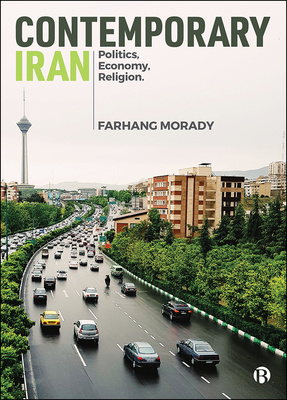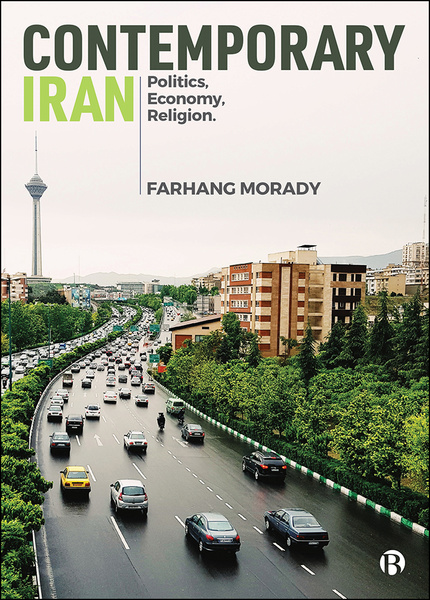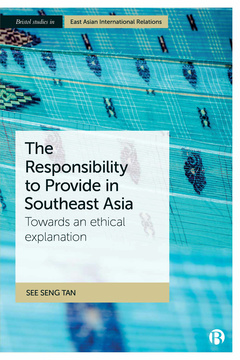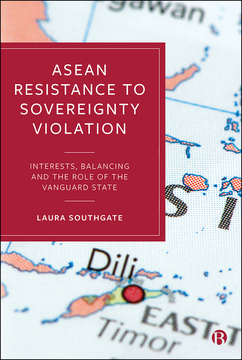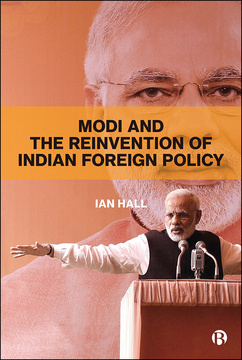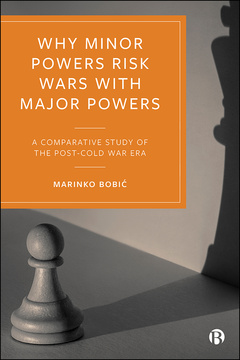Published
Sep 3, 2020Page count
196 pagesISBN
978-1529209563Dimensions
234 x 156 mmImprint
Bristol University PressPublished
Sep 3, 2020Page count
196 pagesISBN
978-1529209556Dimensions
234 x 156 mmImprint
Bristol University PressPublished
Sep 3, 2020Page count
196 pagesISBN
978-1529209587Dimensions
Imprint
Bristol University PressPublished
Sep 3, 2020Page count
196 pagesISBN
978-1529209587Dimensions
Imprint
Bristol University PressIn the media
On our blog: How Iran is battling with economic sanctions and COVID-19
This accessible introductory text explains the political, economic and religious developments since the formation of the Islamic Republic in 1979 and provides an analysis of the domestic politics of Iran. It identifies the ways in which the country, often imagined as ‘isolated’, is actually integrated into the global capitalist economy. It also explains the often-heated relationship of the regional powerhouse with the outside world, especially with West Asian neighbours and the United States.
Both rigorous and readable, the book covers:
• Iran’s unusual path of capitalist development;
• The relationship between politics and religion in what is known as ‘God’s Kingdom’;
• The international and domestic factors that shape Iranian politics and society.
Assuming no prior knowledge, this book is an ideal starting point for students and general readers looking for a thought-provoking introduction to contemporary Iran.
“Farhang Morady provides an excellent and incisive account of the tumultuous developments of Iran since the 1979 revolution, providing an expert analysis of both Iran's domestic and foreign policy.” Roland Dannreuther, University of Westminster
“An excellent overview. Farhang Morady’s use of history and political economy simultaneously to capture the peculiarities of Iranian development and place them in a larger context is particularly impressive. Indispensable.” Alex Callinicos, King's College London
“A thoroughly researched book that provides a rich and stimulating analysis of Iranian politics and economics in the 20th and 21st centuries and challenges many Western and orientalist myths.” Adrian Budd, London South Bank University
“A novel contribution to the field of Iranian studies, which uses a political economy approach to understand the relationship between Iran’s political system, culture, and its economic development path.” Christopher Davidson, Royal United Services Institute
"Rejecting the exoticism, culturalism, demonisation, and exceptionalism that dominate Western understandings, this book makes a most compelling case for seeing this vital country in Asia as modern. The accessible text highlights Iran not as an enigma, but as a vibrant polity marked by internal and geopolitical contestations. A must read for those interested in Iran, Energy, and Asian geopolitics." Dibyesh Anand, University of Westminster
Farhang Morady is Principal Lecturer in International Relations and Development in the Centre for the Study of Democracy at the University of Westminster in London.
Introduction
Capitalist Development in Iran: Continuity and Change
Oil, State, Power and Economy
Islam, Politics and Power in Transition: Prologue to the 1979 Revolution
Revolution: Theories and Practices
State and Political Forces in Post-Revolutionary Iran
The Dynamics of US–Iran Relations: Background, Evolution and Consequences
Regional Influence and Ambitions
Conclusion







